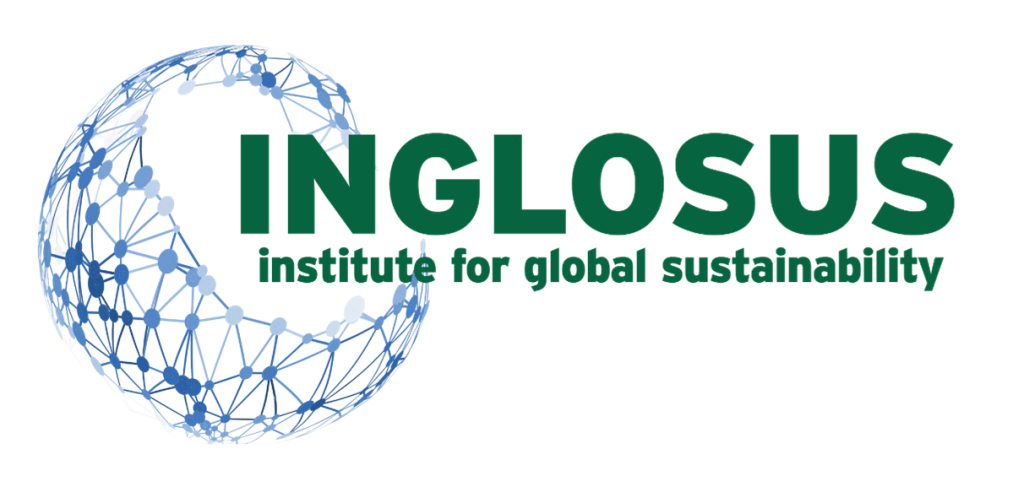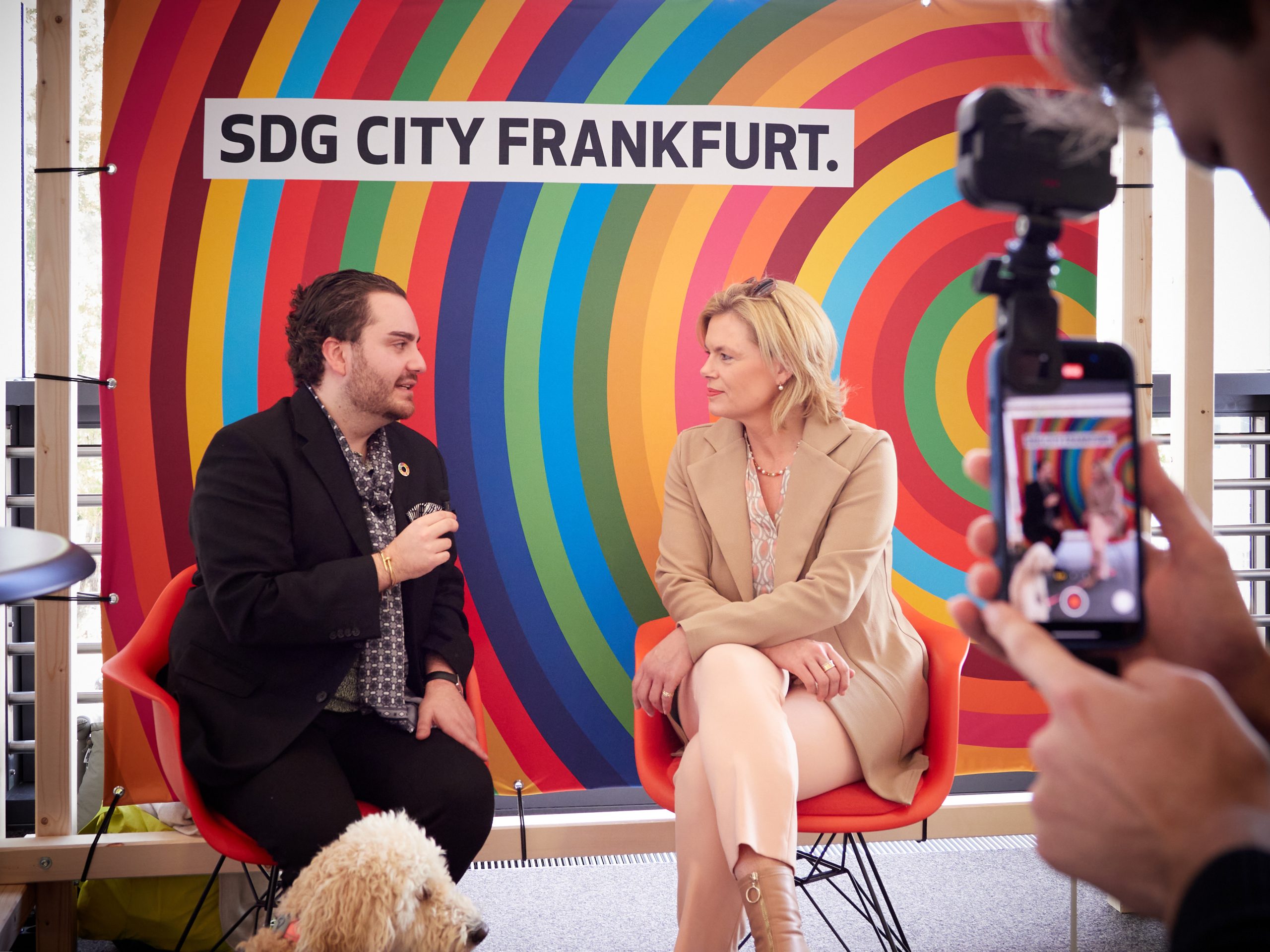The DIGISUSTAIN Conference 2024 placed the theme of “Sustainable Cities” at the heart of its event, with a particular focus on Frankfurt am Main being presented as an “SDG City”—a title awarded to cities that actively and successfully work towards achieving the 17 United Nations Sustainable Development Goals (SDGs). The conference not only featured a dedicated DIGISUSTAIN SDG City Frankfurt booth but also a special panel discussion titled “SDGs in Frankfurt – How a City Evolves for the Future.” However, the question remains: how far along is Frankfurt in terms of sustainability, and where does the city stand in earning the “SDG City” title following the DIGISUSTAIN event?
The 17 United Nations Sustainable Development Goals (SDGs)
The 17 SDGs, introduced in 2015, serve as a global roadmap to tackle the world’s most pressing economic, social, and environmental challenges. These goals aim to create a sustainable, just, and future-ready world for all by 2030. Each goal—ranging from eradicating poverty and inequality to protecting the environment and building sustainable cities—is part of a broader vision that prioritizes the well-being of both people and the planet.
However, as we approach 2024, with only six years left until the target year of 2030, it is becoming increasingly clear that progress is insufficient to fully meet the goals. The gap between ambition and reality is widening, amplifying the urgency to intensify efforts and find innovative solutions to achieve the SDGs.

More information of SDG City Frankfurt here.
Frankfurt as a Hub for Green Innovation
Frankfurt plays a pivotal role in driving the green transformation. As Germany’s and Europe’s most important financial hub, the city is home to over 66,000 banking professionals, 280 financial institutions, and key organizations like the European Central Bank, EIOPA, Deutsche Bundesbank, and AMLA, the EU’s Anti-Money Laundering Authority.
Frankfurt is also renowned for its major transport and internet hubs, its green initiatives, and its long history in trade and democracy. Post-Brexit, Frankfurt has grown in significance as a financial center and now ranks as the third-largest trade fair city in the world. Additionally, it boasts a vibrant academic scene, with more than 44 research institutions and 250,000 students in the Frankfurt Rhine-Main metropolitan region.

More information of SDG City Frankfurt here.
INGLOSUS: Bridging Sustainability and Cooperation
Founded in 2021, INGLOSUS is a foundation and institute focused on supporting climate, environmental, and development efforts across various sectors. By combining science and management, INGLOSUS collaborates with corporations, SMEs, and startups to implement comprehensive sustainability goals. INGLOSUS serves as a bridge between the public and private sectors to accelerate social, global, and Frankfurt’s economic transformation.
SDG City Frankfurt: A Model for Glocalization
With key projects like the DIGISUSTAIN Conference, SDG Night Davos, and the Cultiva Green Project Ecuador, INGLOSUS has become a significant driver of both local and international sustainability initiatives. Recently, INGLOSUS was officially commissioned by UN-Habitat to support Frankfurt am Main’s progress on the SDGs. The new “SDG City Frankfurt” initiative positions Frankfurt as a hub of knowledge and collaboration for the green city of the future.
In collaboration with Atelier Markgraph, the INGLOSUS Foundation launched the SDG City Frankfurt project. The DIGISUSTAIN Conference served as the perfect platform to introduce this joint initiative to representatives from politics, business, and civil society. The SDG City Frankfurt project aims to implement the 17 SDGs at the local level and foster innovative solutions for sustainable urban development. In close cooperation with the city of Frankfurt, local businesses, and social organizations, projects will be initiated to promote sustainable mobility, renewable energy, resource-efficient construction methods, as well as social justice and education for all.
The official YouTube video is available under SDG City Frankfurt.
The DIGISUSTAIN Conference 2024 brought together prominent figures like Julia Klöckner, former Minister of Agriculture and member of the German Bundestag, to discuss the challenges and opportunities of digitization and sustainability. Within the SDG City Frankfurt project, ideas were developed on how technologies can be used to make cities more livable, inclusive, and environmentally sustainable. A particular focus is on integrating the SDGs into local business and urban planning, positioning Frankfurt as a pioneer in sustainable development.
DIGISUSTAIN as a Project Accelerator
Cities are home to millions of people worldwide. However, the rise in urbanization and population numbers creates new economic, environmental, and governance challenges that significantly impact sustainable transformation. At the DIGISUSTAIN conference “Activating the 17 SDGs in the City,” UN-Habitat (United Nations Human Settlements Programme), the INGLOSUS Foundation, and the city of Frankfurt am Main hosted a discussion platform on how the 17 SDGs must shape the narrative of urban development in the future.
Key speakers, such as Dr. Shipra Narang Suri, Chief of Urban Practices Branch at UN-Habitat, Dr. Nargess Eskandari-Grünberg, Mayor of Frankfurt am Main, and Stefan Weil, Founder and Managing Partner of Atelier Markgraph, shared insights at the conference.
INGLOSUS Goes New York
“Frankfurt will become Germany’s first SDG City”
declared Darius Maleki, Vice Chairman of the INGLOSUS Foundation and co-initiator of the SDG City Frankfurt project, on September 25th at the 79th high-level side event of the UN General Assembly (UNGA) on social entrepreneurship, youth, and technology.

During the Summit of the Future and New York Climate Week, INGLOSUS was honored to accept an invitation from Nobel Peace Prize laureate Dr. Muhammad Yunus. For INGLOSUS, this was the perfect opportunity to promote Frankfurt as a key player in the path toward green transformation. Frankfurt has the potential to become a leading example of how the 17 SDGs can be localized under the UN-Habitat mandate.
DIGISUSTAIN 2025: Next Steps for Frankfurt’s Sustainability
Join us and shape the future of Frankfurt! Attend DIGISUSTAIN 2025 and engage with leading experts on sustainability and digitization in Frankfurt. Discover how we can collectively create sustainable momentum and set the standards for future generations. Become a partner and actively contribute to the change! Learn more about DIGISUSTAIN on our website at www.digisustain.de or contact us at office@digisustain.de.

